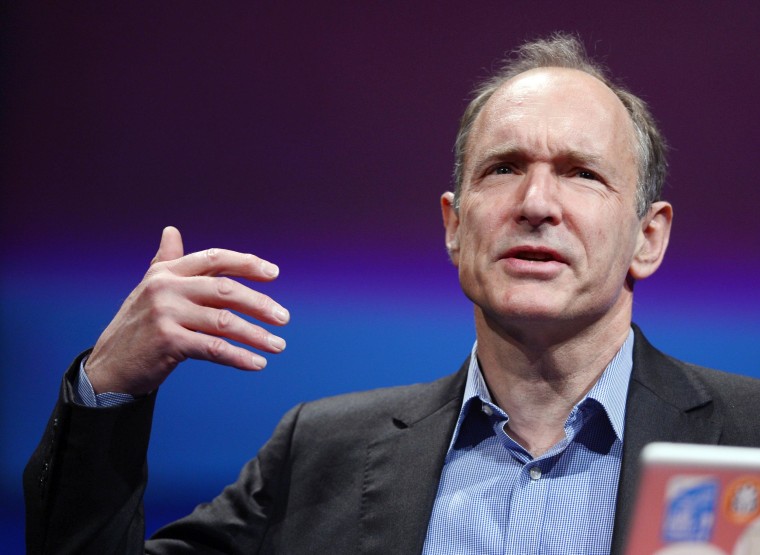It’s time to blow out some birthday candle GIFs, because the World Wide Web officially turns 25 years old on Wednesday.
Back in 1989, Sir Tim Berners-Lee created a proposal for what would eventually become the Web. (He was knighted for his efforts in 2004.) Now he is calling for a “digital bill of rights” to advance free and open access to information online.

Who is Berners-Lee and why should who cares what he says?
Before Berners-Lee, the Internet was mainly the province of technical experts — known in ‘80s comedies as “nerds” — who communicated through things like bulletin board systems (BBS). Then came Berners-Lee with his idea for a “global hypertext system,” which, along with the rise of the Mosaic browser, let people enter a Web address and bring up pages stored on computers across the globe.
What would a “digital bill of rights” do?
The Web is no longer just dancing babies. People pretty much rely on it for everything, from banking to taking classes to settling bar bets on IMDB. That makes open access more important.
Working with the World Wide Web Consortium, Berners-Lee wrote in a Google blog post about the need to draft a digital bill of rights (or “Magna Carta,” depending on the nationality of the audience) that would address:
- How to connect the 60 percent of the globe who do not have Web access.
- How to protect against censorship, as well as Internet snooping in light of accusations against the National Security Agency and Britain’s equivalent, the GCHQ.
- How to “protect the magic of the open Web.” A recent court ruling that would allow Internet service providers to favor traffic from some sites over others has created worries that “net neutrality” will be a thing of the past.
So is this going to happen or what?
This isn’t a manifesto or anything. In the true spirit of the Web, Berners-Lee is pointing people to an online campaign where people from different countries can work together to draft their own digital bill of rights. Whether governments pay attention to them is another matter.